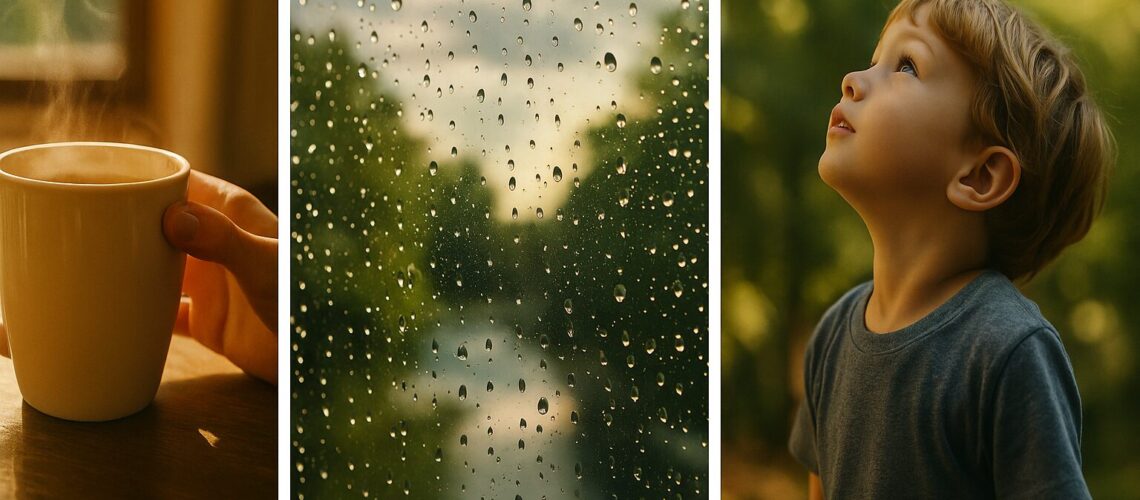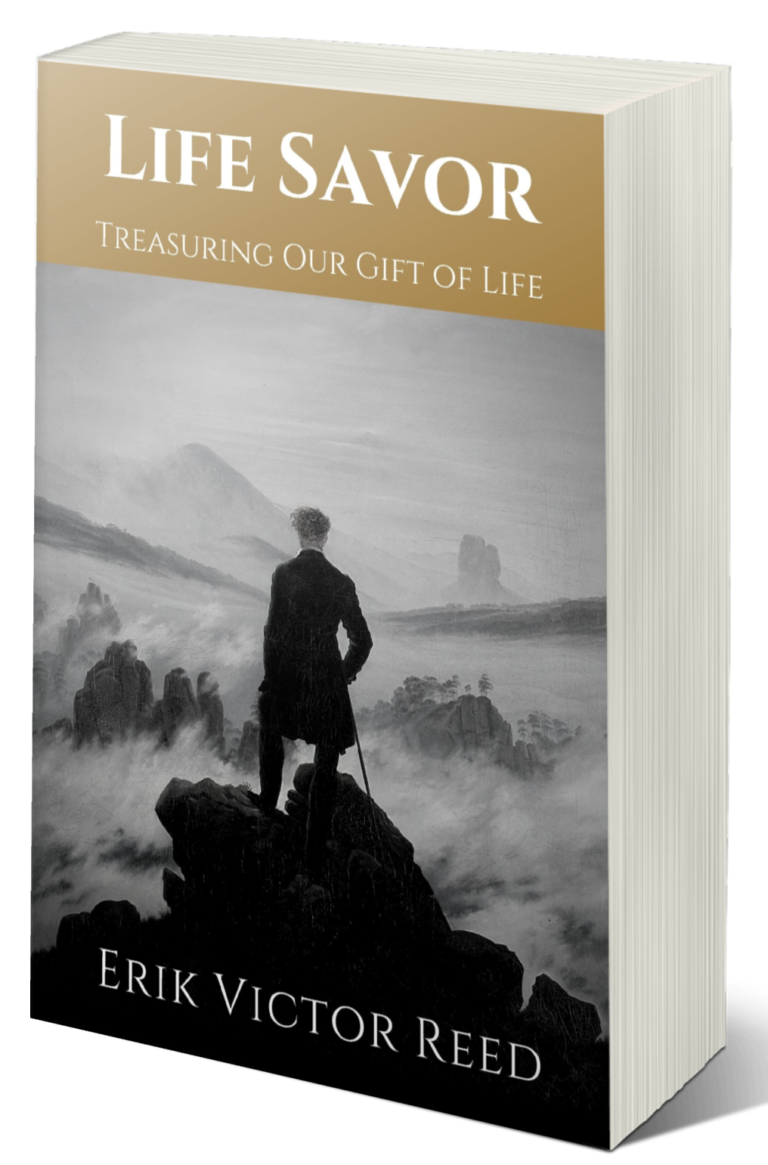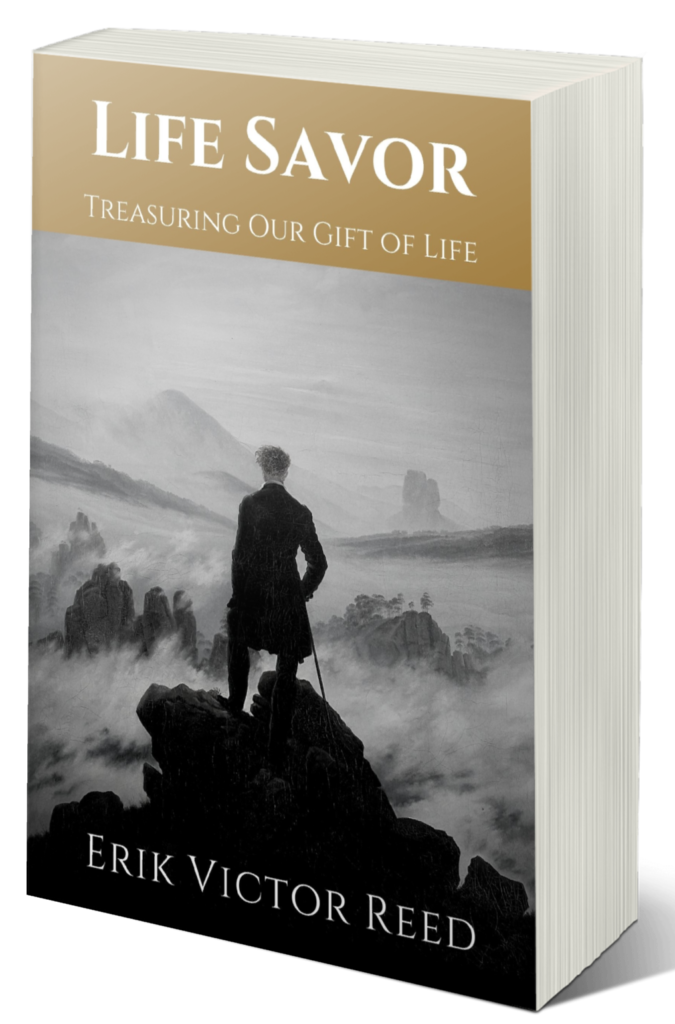Moving from numbness to noticing
Instead of one long essay, today I’m sharing three short reflections tied together by a common thread. Think of it as a triad—three perspectives that complement each other.
Sitwell: Hymns of Praise
The poet Edith Sitwell once wrote:
“My poems are hymns of praise to the glory of life.”
Sitwell’s words are a reminder that we don’t have to be professional poets to sing life’s praises. Every day we’re composing our own verses—sometimes in words, sometimes in actions, sometimes simply in noticing.
When you pause to feel the warmth of a mug between your hands, when you step outside and let the breeze brush your face, when you notice laughter echoing in another room—you’re writing your hymn. Noticing is a form of praise.
But too often, we forget. Our hymns fall silent under the noise of errands and obligations. Life becomes background static instead of music. Sitwell’s challenge is to recover our awareness, to lift our eyes again to the “glory of life” that is always humming around us.
Reflection prompt:
What’s one small detail today that could be your verse—a note of praise for existence you might otherwise miss?
From Anesthetic to Aesthetic
Richard Dawkins once spoke of the “anesthetic of familiarity.” When we’re surrounded by wonders every day, they start to feel ordinary. We get dulled, numbed—anesthetized—by repetition.
Think about the way you stop hearing a refrigerator’s hum or stop noticing the scent of your own home. Life works the same way. Familiarity dulls our senses until miracles like sunrise, birdsong, or even consciousness itself fade into the background.
The antidote to this anesthesia is the aesthetic—learning to see with fresh eyes. An aesthetic experience doesn’t require travel or luxury. It can be as simple as watching rain streak a window, or catching the symmetry of leaves against the sky. The aesthetic lens pulls us out of autopilot and places us back into astonishment.
This shift is not only refreshing, it’s grounding. It reminds us why life is worth striving for at all—not just to achieve, but to savor.
Practical step:
The next time you feel numb or hurried, stop and name three things in your immediate surroundings that would look miraculous if you saw them for the first time.
Borrowed Eyes
Here’s an experiment: imagine today you’ve been given another person’s eyes. Maybe a child’s. Maybe someone who has never seen the world before.
What would you notice? How would you describe your morning coffee if you were tasting it for the very first time? What would a tree look like if you had no name for “tree,” only the astonishment of its form and color?
Borrowing another’s eyes—even in imagination—resets our own. It strips away the dulling filter of habit. Suddenly the ordinary becomes rare again.
This experiment is more than playful. It’s practice. It trains us to return to life’s surfaces and textures with awe, to reclaim what our familiarity has stolen. It teaches us that beauty is not rare—it’s just rarely noticed.
Closing reflection:
If you could borrow eyes today, what would they see that you’ve been missing?
A Thread Through All Three
Sitwell invites us to write hymns of praise through our noticing. Dawkins warns us about the anesthetic of familiarity. The borrowed-eyes experiment gives us a way back into wonder.
Together, they form a triad of aesthetic awareness—a framework for savoring life before death. Each calls us to step outside our numbness and return to the miracle that is always available: the chance to be alive, awake, and aware.
You don’t need a cathedral to experience reverence. A cup of tea will do. You don’t need a symphony to hear hymns of praise. The sound of your own breath is enough.
The question is simply: will you notice?
For more like this, visit the broader project at life-savor.com, or explore the Life Savor book itself.
To learn more about Life Savor’s philosophy,
read Life Savor: Treasuring Our Gift of Life by Erik Victor Reed.








